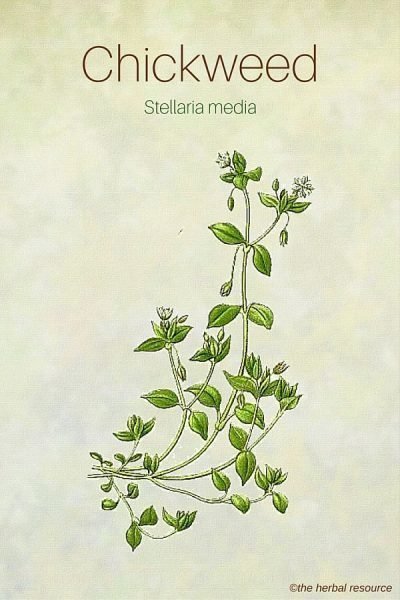The medicinal actions of chickweed are regarded to be antirheumatic, astringent, carminative, demulcent, diuretic, emollient, expectorant, laxative, refrigerant, and vulnerary.

The benefits of chickweed may in part be due to its high nutritional value. It is particularly high in ascorbic acid (vitamin C), gamma-linolenic acid (GLA, the omega-6 fatty acid derivative), saponins, niacin, riboflavin (B2) thiamine (B1), beta carotene (A), magnesium, iron, calcium, potassium, zinc, phosphorus, manganese, sodium, selenium and silica. (1)
Chickweed is best known for its soothing and healing quality. The high saponin content of this herb is thought to be the reason for its effectiveness in relieving skin problems such as erysipelatous and other forms of ulceration, as well as many forms of cutaneous diseases. (2)
Chickweed has been used traditionally as an external remedy for cuts, wounds, minor burns, abscesses and skin irritations, especially such as itching, dryness and irritation due to dermatitis, eczema or psoriasis.
Taken internally as a tea or tincture, chickweed has a reputation as a treatment for rheumatism and an infusion of the fresh or dried leaves added to bath water is thought to reduce inflammation caused by rheumatic pain. (3)
A poultice of the crushed leaves has been used traditionally to relieve any kind of roseola and is thought to be effective where there are fragile superficial veins.
Taken internally in small quantities as a decoction, chickweed is considered a treatment for constipation, kidney complaints and quick relief of pain in the digestive system.
I’m interested go article